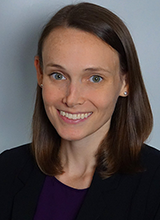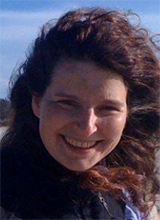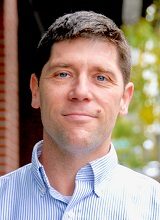
Dr. Banta-Green studies substance use involving opioids and stimulants and interventions to support recovery and reduce substance-related harms. He is particularly interested in developing interventions that are accessible to all people, including those who are most marginalized, such as those who are unhoused, utilizing services syringe service programs, and/or in the criminal legal system. He provides technical assistance and evaluation services for public health and safety interventions including the website http://stopoverdose.org, and information for the general public and professionals about effective treatments at http://learnabouttreatment.org. As an epidemiologist he develops innovative approaches to measuring the use and impacts of substances as well as service utilization. His health services research involves clinical trials, implementation research, and secondary data analyses. He serves on local, state, and federal workgroups and committees related to epidemiology, policy, and interventions for illicit substance-related problems. He is a member of the U.S. Health and Human Service’s Interdepartmental Substance Use Disorders Coordinating Committee.
Dr. Jaffe’s research is focused on responding to the public health problem of sexual assault and co-occurring alcohol misuse by improving understanding of survivors’ experiences and promoting recovery through novel interventions.
Taking an ecological perspective, Dr. Jaffe considers individual factors (e.g., cognitions, stress response), microsystems (e.g., interpersonal interactions, social networks), macrosystems (e.g., societal norms), and chronosystems (e.g., changes over time) that affect survivors’ recovery after sexual assault. Across these systems, she seeks to design and improve clinical interventions that support survivors’ recovery, mitigate post-assault alcohol misuse, and reduce distress.

I am a child and adolescent psychiatrist at Seattle Children’s Hospital and faculty member at the University of Washington Medicine. My SCH practice locations include the Gender Clinic (Adolescent Medicine), Outpatient Psychiatry Clinic, Autism Center, and the inpatient unit- Psychiatry and Behavioral Medicine Unit (PBMU). I believe in delivering compassionate, evidence-based care in supporting patients and their families. My approach is both comprehensive and patient-centered, as it is important to consider the needs of the individual while also appreciating societal and cultural context. I specialize in working with diverse patient populations with various marginalized identities, such as those who identify as LGBTQ, gender diverse, and/or neurodiverse. I also work closely with the Adolescent Medicine Gender Clinic in supporting any mental health needs of transgender/gender diverse youth and their families. I also collaborate with colleagues in specialty medical clinics to coordinate care of medically complex patients. Additionally, I serve as a consultant with various school programs to support mental health initiatives and advocacy efforts.
Academically, I am involved with several initiatives both locally and nationally, particularly those that work to promote diversity and equity. I serve on committees supporting the SCH/UW CAP Fellowship Program, educating trainees and students through direct clinical supervision as well as with lectures and discussions. On a national level, I serve on the Sexual Orientation and Gender Identity Issues Committee (SOGIIC) for the American Academy of Child and Adolescent Psychiatry (AACAP). My clinical research focuses on finding strategies to better support the mental health and well-being of patients and families who are LGBTQ+. Additionally, I work on studies that explore the intersection between gender diversity and neuro diversity/autism spectrum.
I am interested in assessing risky alcohol and substance use and related consequences in young adults, with a specific focus on impaired driving-related behaviors. My work has mostly utilized a behavioral decision-making approach to understand factors that influence young adults’ decisions to engage in risky behaviors. I am also interested in developing and adapting prevention and intervention programs to reduce alcohol and substance use and consequences.
I am a developmental psychologist with additional training and expertise in quantitative methods. I am an associate professor in the UW Department of Psychiatry and Behavioral Sciences, a core member of the Center for the Study of Health and Risk Behaviors (CSHRB), faculty affiliate of the Center for Studies in Demography and Ecology (CSDE), and adjunct faculty at the UW School of Social Work. My main collaborations at UW involve colleagues from CSHRB but I also maintain strong research collaborations with my colleagues from the Social Development Research Group (SDRG), School of Social Work, and other departments. In addition to research, I occasionally teach graduate-level classes on research methods and evaluation in social welfare (SOCW505, SOCW506, SOCW507) and research and theory (SOCWL599) at the School of Social Work. I am also actively involved in mentoring graduate students and postdoctoral fellows.
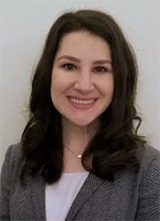
Personal Statement
Dr. Cadigan is an Assistant Professor and licensed psychologist in the Department of Psychiatry and Behavioral Sciences. She received her Ph.D. from the University of Missouri in 2016 and then completed clinical psychology internship and fellowship at the University of Washington Medical Center.
Her program of research focuses on adolescent and young adult health and wellbeing, with an emphasis on the etiology, prevention, and intervention of substance misuse and co-occurring mental health concerns. This work aims to develop, test, and disseminate innovative prevention and intervention programs to reduce substance misuse and improve mental health among adolescents and young adults. This work has included developing and testing programs for young adults who use substances to cope with negative affect and loneliness. Her work has also examined etiological factors related to co-occurring mental health and substance use, including the effects of loneliness, depression, coping motives, social support, solitary substance use, and factors associated with improving access to mental health care.
Clinically, she works with adolescents presenting with depression and suicidality at Seattle Children’s Hospital in the Behavioral Health Crisis Care Clinic and in the Mood and Anxiety Program.
- Recent Grants:
- Development of a behavioral economic intervention with personalized resource allocation feedback to reduce young adult alcohol misuse (PI: Cadigan, NIH/NIAAA1R34AA029478)
- Development of an interactive, we-based drinking to cope intervention and tools to assess coping skill utilization (PI: Cadigan, NIH/NIAAA R34AA028074)

Personal Statement
My program of research focuses on understanding how psychological, social, and situational factors influence young adult substance use and also the development of brief interventions for young adults. In particular, my research investigates processes influencing substance use behaviors from day-to-day or moment-to-moment. I use different types of daily-level or ecological momentary assessment (EMA) designs to elucidate why and how substance use varies across different occasions for a given individual in relation to changes in cognitions and contextual characteristics. My program of research enhances our knowledge of the etiology of substance misuse to inform the refinement and development of brief personalized feedback interventions as well as real-time interventions.
I am currently Multiple Principal Investigator (MPI Fairlie/Ramirez) of a NIAAA-funded grant (R34AA027302) developing two versions of an online personalized feedback intervention that focuses on alcohol cue reactivity among young adult drinkers; the study includes a lab component with an alcohol cue reactivity session as well as an EMA component (daily surveys up to 4x/day over 17 days). In addition, I am the PI of a NIDA-funded grant (R21DA050131) that investigates marijuana-specific self-regulation processes in relation to marijuana use and consequences both across days and throughout the day to identify how psychological states and contextual factors influence these self-regulation processes using an EMA design (daily surveys 4x/day over 2 weeks). As PI, I completed data collection for a grant that examines unplanned heavy drinking, protective behavioral strategies, and alcohol-related consequences using daily surveys administered over eight consecutive weekends (NIAAA; R21AA024156).
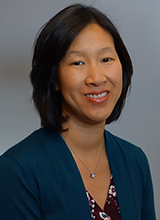
Personal Statement
The transition to adulthood is the developmental period when alcohol use, marijuana use, and their associated consequences reach their lifetime peak. My scholarly interests focus on the etiology and prevention of substance use behaviors and consequences during adolescence and young/early adulthood. I have developed a highly successful portfolio of work bridging developmental, social, and motivational theory with applied prevention and intervention techniques to strategically address high-risk behaviors during the transition to adulthood.
My research addresses important questions regarding how recent marijuana legislation in Washington State impacts young adult marijuana use and consequences; what motivates young adults to engage in alcohol and marijuana use; how alcohol expectancies, alcohol use and consequences are linked in a natural feed-forward process that maintains high-risk behaviors; how developmental transitions and event timing influence use; and what are efficacious prevention and intervention strategies and for whom and under what conditions are these most effective.
Personal Statement
My clinical work and research are focused on helping youth with ADHD and their families be resilient and successful. Specifically, I am interested in creating and disseminating behavioral treatments for ADHD and disruptive behavior that are accessible and engaging for families. I enjoy consulting and training with providers in a variety of settings, including integrated primary care, to offer treatments that provide immediate help to their patients. My current research focuses on improving family relationships and health outcomes for youth with ADHD, including preventing risk behaviors and improving active and healthy lifestyles.
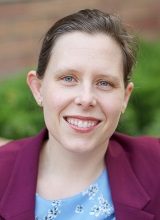
Personal Statement
I am a board certified psychiatrist and work at Fred Hutchinson Cancer Center. I am a Clinical Assistant Professor of Psychiatry and Behavioral Sciences at the University of Washington. I obtained a fellowship in consultation-liaison psychiatry, a specialty that focuses on providing psychiatric care for people with complex medical conditions. My primary clinical focus is people with cancer.
I love my work. Being ill is a vulnerable time and my goal is to ease suffering and provide a sense of connection and understanding for all I work with. I believe in working collaboratively with patients and families. We work together to identify what the goals of treatment are. I have expertise in diagnosis, psychopharmacology and psychotherapy and adapt my recommendations to best serve the goals of the person before me.
I am also passionate about education. I am the site director at Fred Hutch Cancer Center for our Psycho-oncology Fellowship Program. I supervise Cl fellows, addiction fellows, psychiatry residents and provide education to social workers and psychology trainees.

